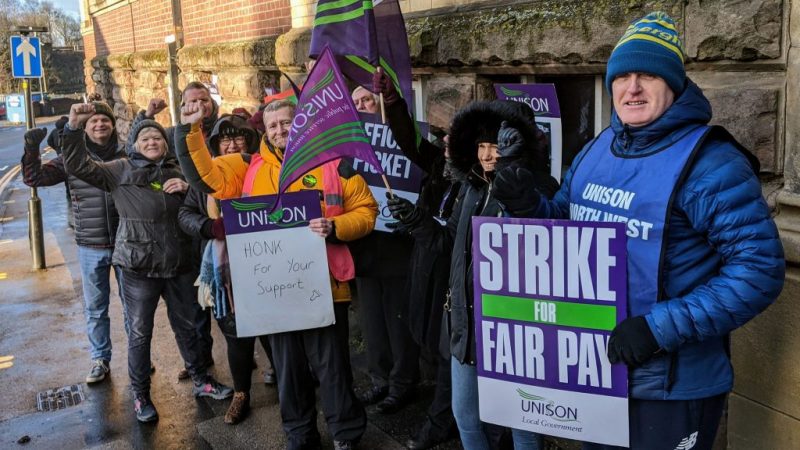
The regulation watchdog has concluded that the government’s impact assessment of the minimum service levels bill is “not fit for purpose”, in what Angela Rayner described as a “damning judgement”.
The Regulatory Policy Committee (RPC) today gave the anti-strike legislation’s impact assessment (IA) a “red rating”, which the watchdog said “reflects the insufficient assessment of the impacts of the bill on small and micro-businesses”.
Commenting on the RPC’s conclusion, the deputy Labour leader said: “This is a damning judgement by independent experts on the government’s ‘sacking nurses’ bill. Tory ministers have failed utterly to do due diligence on this shoddy, unworkable policy, breaking their own rules and failing to provide evidence for their claims.
“Clearly, the government is trying to hide the severe and disproportionate impacts its legislation will have on small businesses. It’s little wonder they’re trying to rush this legislation through parliament, because not one bit of it stands up to scrutiny. This is a complete dereliction of ministerial duty.”
The bill, which would see minimum service levels enforced during strike action in certain areas of the public sector, passed its third reading in the Commons unamended by 315 votes to 246. The legislation is due to receive its second reading in the Lords later this afternoon.
The RPC opinion stated that the Business Department’s IA of the bill “does not adequately address whether [small and micro-businesses] will face disproportionate impacts and whether exemption or mitigation for disproportionately affected SMBs has been considered”.
It concluded that the government’s cost-benefit analysis was “weak” and that the Business Department “makes use of assumptions in the analysis which are not supported by evidence”.
The opinion continued: “It is not clear that the IA considers all of the impacts of the new requirements that will be introduced via the bill. For example, the IA notes the introduction of work notices, but it does not consider these impacts in any detail.
“The Department must ensure that all direct business impacts (including those to trade unions) have been clearly identified and discussed, as well as appropriately (indicatively) quantified, to provide a better understanding of the scale of the impact
upon business of the bill at secondary stage.”
The RPC noted that the IA “does not consider or discuss the rationale behind workers’ decisions to strike” or “consider the actions short of striking that may be taken”, adding: “The IA could have considered this, in particular as the IA notes the risk of further (and even increased) strike action.”
Also commenting, TUC general secretary Paul Nowak said: “Ministers are trying to keep parliamentarians and the public in the dark about this draconian legislation – which is a direct attack on our fundamental right to strike.
“It is telling that the government’s own independent watchdog has given ministers the red card on this bill and labelled it ‘not fit for purpose’. Ministers must come clean about the true nature of this nasty bill. They must not be allowed to duck scrutiny.”
The RPC said the Business Department “did not follow its own policy for the timely submission of an IA to the RPC”. The watchdog issued a statement following the bill’s first reading, noting that ministers are “expected” to submit IAs before a bill is laid before parliament but that an assessment for the bill had “not yet been submitted”.
The legislation proposes to give the Business Secretary the power to set minimum service levels during strikes in certain areas of the public sector, with employers instructing unions via ‘work notices’ how many workers will be required on strikes days to meet that level.
The bill would apply to six sectors: health, education, fire rescue, transport, border security and nuclear decommissioning. Under the law, unions would be required to take “reasonable steps” to ensure members comply with the work notice and could be sued if they fail to do so.
Striking workers would lose their protection from unfair dismissal if the work notice states that they should be working, provided that their employer has given them notice ahead of the strike day.




More from LabourList
‘If Labour is serious about upskilling Britain, it must mobilise local businesses’
Stella Tsantekidou column: ‘What are we to make of the Labour Together scandal?’
‘Unitarisation risks weakening local democracy unless communities are put in the driving seat’